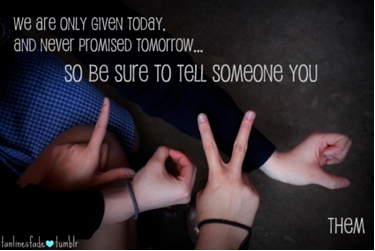EILEEN RIFE TELLING ABOUT HER NEW BOOK
"SECOND CHANCE"
 |
EILEEN RIFE
AUTHOR |
It is exciting to learn about your new book Second Chance, Eileen, and I'm sure others are anxious to read what you will be telling us about your story. I like the cover, by the way, and it appeals to my interest if I were to see it displayed in a book store. So, without further ado, let me begin by asking you if there is a reason you thought of the subject idea for this book in particular, or I'll ask that question a bit differently.....
How did you come up with the idea for
Second Chance?
The seed of
inspiration developed from a desire to build awareness about inner city teen
ministries, and specifically Straight Street of the Roanoke Valley where I live
and where my son-in-law and daughter serve full-time.
What is Second Chance about?
Second Chance is the poignant story of middle age,
surprising friendships, and unexpected places.
Mave
Robertson, a recent empty nester, wants the fire back in her marriage, but her
husband Jerry remains aloof. Is he having an affair? Midlife crisis? When a
neighbor suggests Mave “get a life,” she accepts the challenge and volunteers
at an inner city teen ministry where she’s thrown into a culture of drugs,
gangs, and unwed teen moms. She soon discovers someone she can help, but might
he also be the cure for both her stale marriage and her crumbling relationship
with her father.
Dareece
Jackson, a teen from the projects, wants something in Mave’s purse . . . and
he’ll stop at nothing to get it.
Why did you pick the setting you did?
Second Chance is set in Roanoke, VA, where I’ve
lived for almost 23 years. I had no idea how prevalent both drugs and gang
activity are in my own cozy little city until I did some research. Often both pursuits are born out of a need to
belong, to be significant, and to be secure, all basic human needs. Sadly,
drugs and gang life lead participants down a dead-end street, resulting in
danger both to themselves, their families, and others. My hope is that readers
will gain awareness and be moved to compassionate action for lost and hurting
teens in their own hometowns.
What are some themes addressed in
Second Chance?
One of the
themes Second Chance addresses is
purpose in the second half of life. My central character, Mave, spends her
adult life rearing her children. Now that they’re grown and out of the home,
she wonders if her best days are over. Her neighbor helps her see that she can
enjoy midlife if she’ll get involved in something bigger than herself.
Maintaining a meaningful purpose in every season of life is central to our
well-being, and thus a powerful theme in Second
Chance.
Another
theme is redemption. Mave, her husband Jerry, and Dareece come together on the
common ground of needing to forgive their fathers for past abuse. This theme
bridges social and economic status, helping the reader realize that whether
s/he lives in a middle class neighborhood or the projects, s/he can still
struggle with some of the same fundamental issues in life.
How has this story touched you on a
personal level?
In some
ways, writing Second Chance was my
way of processing entrance into the empty nest. I had homeschooled my three
daughters for 20 years. I knew there would be an end to that period in my life,
but when it happened, I wasn’t totally prepared. Several life events occurred
at the same time: two daughters’ weddings in one year, two first grandbabies
the next year, my mother’s death, my husband starting a new business. I felt
overwhelmed. Looking back, I should (ah, the wonderful should), have taken a personal retreat of some sort to rest,
regroup, and reflect on the “what’s next?” question.
On another
level, Second Chance is close to my
heart because I wanted to honor and help promote Straight Street.
Do you have any tips/suggestions for
moms as they approach the empty nest?
Foster a healthy, growing
relationship with your husband. This is vital, so that when you enter the empty nest season,
you won’t be sitting across the table from your husband, thinking, Who is this guy? Investing in your marriage
now will pay off down the road. I encourage couples to pencil in a weekly date
night on the calendar, even if it simply means putting the kids to bed early
and sitting on the sofa together with a bowl of popcorn.
Second Chance highlights this throughout the story
as Mave moves from suspicion about her husband, Jerry, to determination to love
him. This tension plays out in often humorous ways, and one of them involves
popcorn!
Develop a friendship with two or
three trusted women
whom you allow to speak into your life as you grow older. Mave doesn’t always
appreciate what her friend, Trish, has to share. In fact, at times she’s
downright jealous of the woman. But when all’s said and done, she respects her
and values her input.
Know that God has a purpose for you
in every season of life. Begin now to foster your own interests apart from your family. Mine is writing, and the Lord has used this
platform in my life to do what He’s put in my heart: Share His love and
forgiveness with others. You may have to search for your purpose, but it’s
there—some cause or people group that you’re passionate about. Mave discovers
her purpose unexpectedly, but she then takes steps to pursue fulfilling that
purpose.
What do you want readers to take away
after they close the pages of Second Chance?
In the words
of Robert Browning: That the best is yet to come. Midlife doesn’t mean life is
over. When I turned 50 and so many life events were coming at me, I urged my
husband, Chuck, to dance with me. I craved something new and different.
Something to call our own. Now, you have to know Chuck. Dancing is as far from
his personality as you can get. But in his wisdom, he humored me. He even
bought me a dance instruction video that Christmas. Now, six years later, we
still take an occasional dance class. Sometimes, if you peek in our living room
window at night, you’ll see us practicing a few steps in front of the fire
place.
Also, I want
readers to take away awareness and action. Find something or someone else they
can serve. Serving others breeds joy and fulfillment because that’s the way God
has wired us.
What book are you working on next?
I’m
currently juggling three projects, but the next novel is titled Laughing with Lily. And the teaser: An
unexpected encounter with a person from her past launches a special education
teacher on a quest for answers.
Where can readers find you and your
book?
My books are
available for order through bookstores and online.
Eileen, I can personally relate to many feelings you described overwhelming Mave. She certainly went from the kettle to the fire with problems she developed when she sought new solutions to fill up her "empty nest" syndrome. You have illustrated a very clear picture about the highlights of your story without giving away any teasers. You definitely have left me wanting more. I can't wait to get my copy of Second Chances and devour a great read. Reading an interesting page turner is like comfort food to me. The title of your novel in the works, Laughing with Lily, is quite intriguing and we can all look forward to another good story soon. Thank you for giving a thorough synopsis of Second Chances, that speaks to many readers today who will empathize with Mave. You have delighted me with your interview and please come back when you are ready to tell us about Laughing with Lily. You have been blessed especially talented by the Lord with a creative mind and I will pray for the success of your writing future. It's been a joy getting to know another sister in the Lord.
Friends, below is a trailer of a news interview with Eileen Rife on Second Chances. I urge you to watch and enjoy.
Have a great week,
Barb
SHORT BIOGRAPHY OF EILEEN RIFE
An alumna of Christian
Writers Guild and member of American Christian Fiction Writers, Eileen has
published several non-fiction books, written newsletters, a marriage column,
and over ten church dramas. Her byline has appeared in magazines, such as Discipleship Journal, Marriage Partnership,
Mature Living, Christian Home & School, Drama Ministry, and ParentLife,
as well as other print and online publications. Her fiction works include Journey to Judah, Restored Hearts, and Chosen Ones in the Born for India
trilogy, and a stand-alone novel, Second
Chance. She and husband, Chuck,
conduct marriage seminars in the States and overseas. Her favorite pastime in
this season of life is dancing with hubby, spending time with her daughters and
sons-in-law, and playing with her six grandchildren.






